fact-finder
Intelligent question answering system based on knowledge graph.
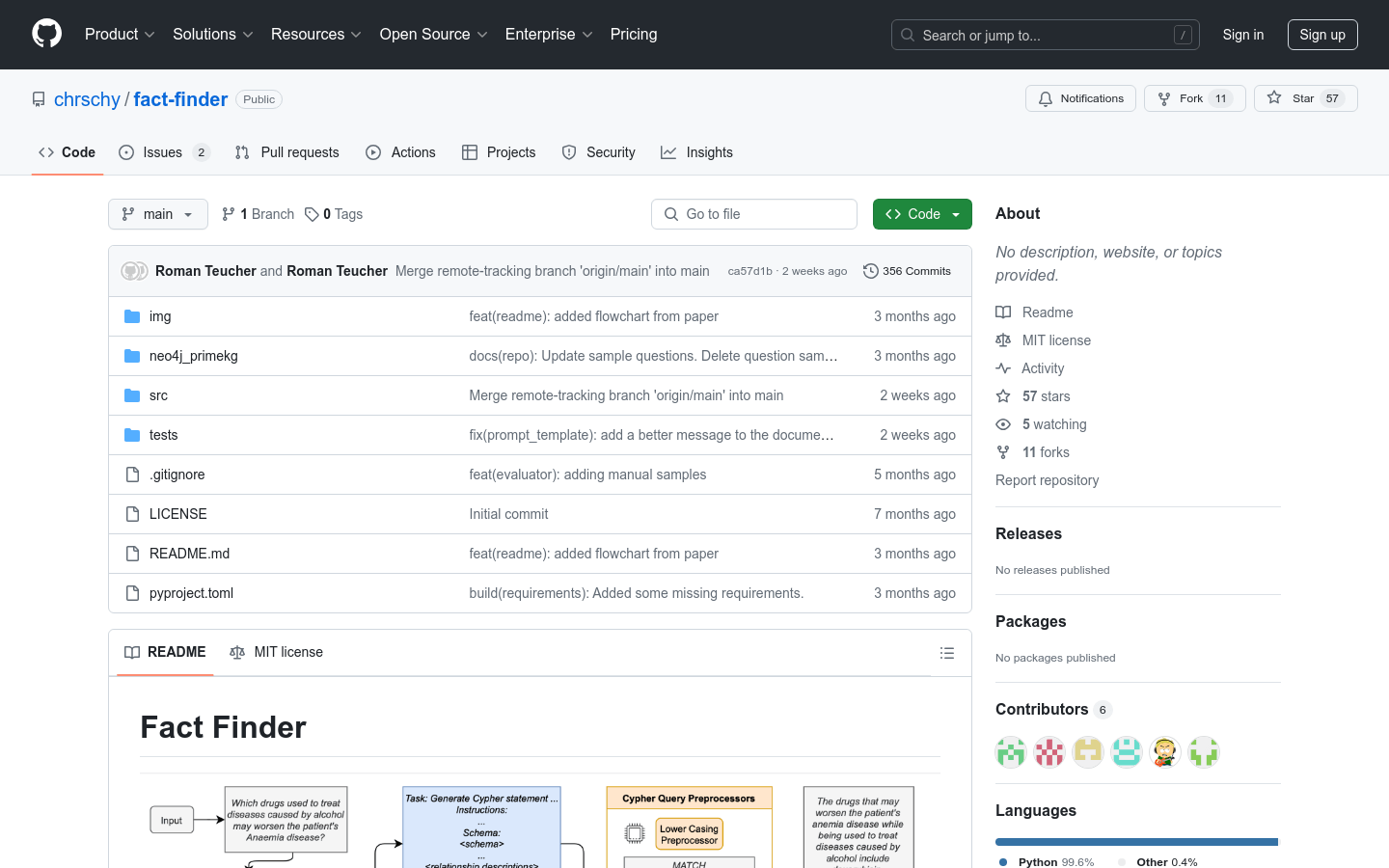
Product Details
Fact Finder is an open source intelligent question answering system that uses language models and knowledge graphs to generate natural language answers and provide evidence. The system generates Cypher queries by calling a language model, queries the knowledge graph for answers, and uses another language model call to generate the final natural language answer. Key benefits of Fact Finder include its ability to provide transparency, allowing users to view queries and evidence, and providing intuitive evidence through visual subgraphs.
Main Features
How to Use
Target Users
The target audience is primarily developers and data scientists who need to build or use intelligent question answering systems to improve the accuracy and efficiency of information retrieval. Fact Finder is suitable for them because it provides a way to combine natural language processing and knowledge graphs to generate accurate and evidence-backed answers.
Examples
Developers use Fact Finder to integrate into their own applications to provide question and answer functions based on knowledge graphs.
Data scientists use Fact Finder to analyze large-scale data sets, extract and verify information.
Educational institutions use Fact Finder as a teaching tool to help students understand complex concepts and data.
Quick Access
Visit Website →Categories
Related Recommendations
Discover more similar quality AI tools

LongCite
LongCite is an open source model that trains large language models (LLMs) to generate accurate answers and precise sentence-level quotations in long text question and answer scenarios. The importance of this technology lies in its ability to improve the accuracy and credibility of question answering systems, allowing users to verify the source of the output information. LongCite supports context lengths up to 128K and provides two models: LongCite-glm4-9b and LongCite-llama3.1-8b, which are trained based on GLM-4-9B and Meta-Llama-3.1-8B respectively.

kotaemon
kotaemon is an open source, RAG (Retrieval-Augmented Generation) model-based tool designed to interact with user documents through a chat interface. It supports multiple language model API providers and local language models, and provides a clean and customizable user interface suitable for end users to perform document Q&A and developers to build their own RAG Q&A process.

spRAG
spRAG is a RAG (Retrieval-Augmented Generation) framework designed for unstructured data and is particularly good at processing complex text queries, such as financial reports, legal documents, and academic papers. Its accuracy is significantly higher than the traditional RAG baseline model on complex open question and answer tasks, such as the FinanceBench benchmark.
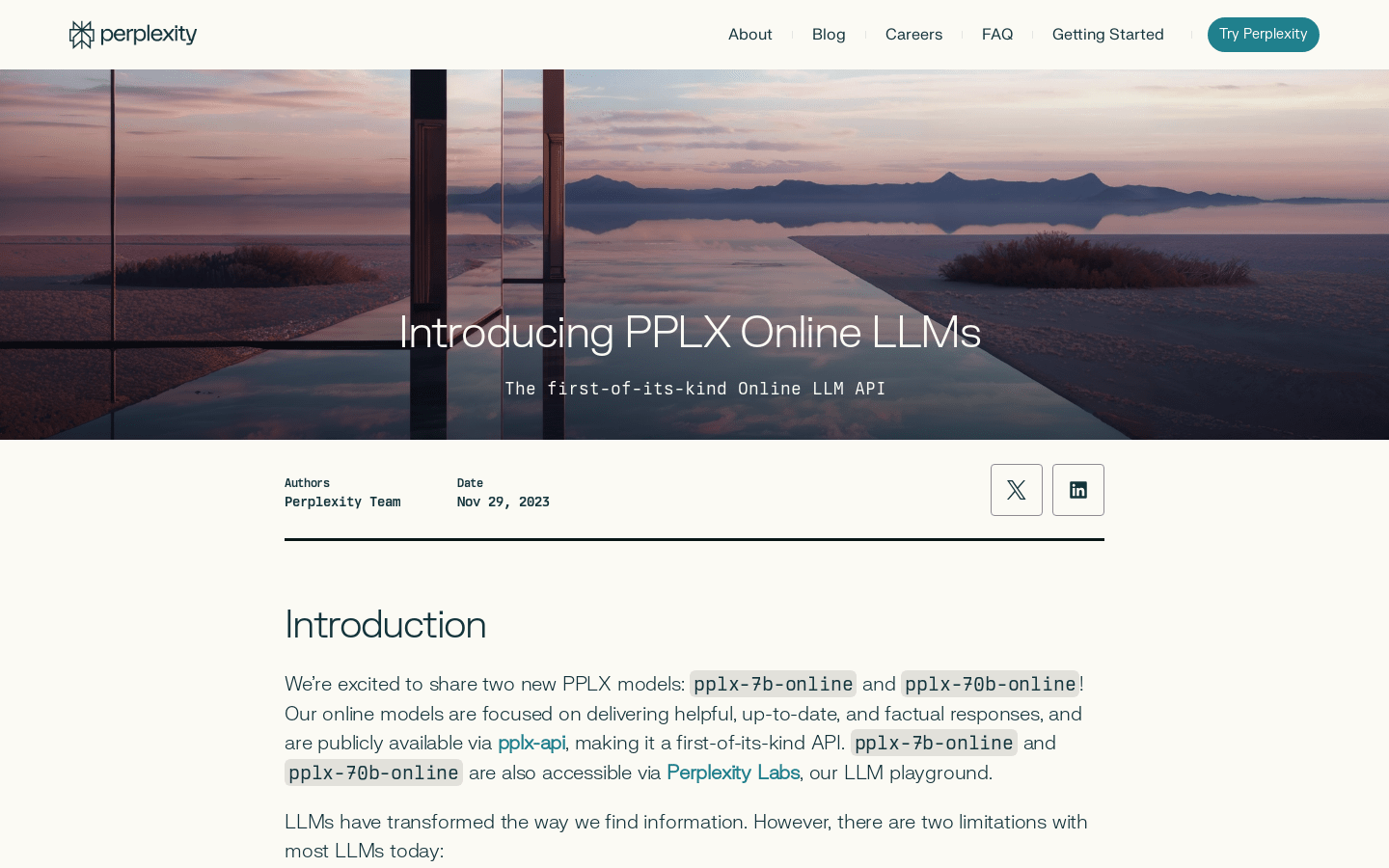
PPLX Online LLMs
Perplexity has launched two online language models: pplx-7b-online and pplx-70b-online. These two models can utilize the latest information on the Internet to form responses, thus being able to accurately answer time-related questions. Responses from pplx online models are more helpful, accurate and timely.

Cognitora
Cognitora is the next generation cloud platform designed for AI agents. Different from traditional container platforms, it utilizes high-performance micro-virtual machines such as Cloud Hypervisor and Firecracker to provide a secure, lightweight and fast AI-native computing environment. It can execute AI-generated code, automate intelligent workloads at scale, and bridge the gap between AI inference and real-world execution. Its importance lies in providing powerful computing and operation support for AI agents, allowing AI agents to run more efficiently and safely. Key benefits include high performance, secure isolation, lightning-fast boot times, multi-language support, advanced SDKs and tools, and more. This platform is aimed at AI developers and enterprises and is committed to providing comprehensive computing resources and tools for AI agents. In terms of price, users who register can get 5,000 free points for testing.

Macroscope
Macroscope is a programming efficiency tool that serves R&D teams. It has received US$30 million in Series A financing and has been publicly launched. The core functions focus on code management and R&D process optimization. By analyzing the code base to build a knowledge graph and integrating a multi-tool ecosystem, it solves the pain points of engineers being burdened with non-development work and managers having difficulty keeping track of R&D progress. Its technical advantage lies in multi-model collaboration (such as the combination of OpenAI o4-mini-high and Anthropic Opus 4) to ensure the accuracy of code review, and customer data is isolated and encrypted, compliant with SOC 2 Type II compliance, and promises not to use customer code to train models. Pricing is divided into Teams ($30/developer/month, at least 5 seats) and Enterprise (customized price) packages, targeting small and medium-sized R&D teams and large enterprises with customization needs, helping teams focus on core development and improving overall R&D efficiency.

100 Vibe Coding
100 Vibe Coding is an educational programming website focused on quickly building small web projects through AI technology. It skips complicated theories and focuses on practical results, making it suitable for beginners who want to quickly create real projects.

iFlow CLI
iFlow CLI is an interactive terminal command line tool designed to simplify the interaction between developers and terminals and improve work efficiency. It supports a variety of commands and functions, allowing users to quickly perform commands and management tasks. The key benefits of iFlow CLI include ease of use, flexibility, and customizability, making it suitable for a variety of development environments and project needs.

Never lose your work again
Claude Code Checkpoint is an essential companion app for Claude AI developers. Keep your code safe and never lost by tracking all code changes seamlessly.
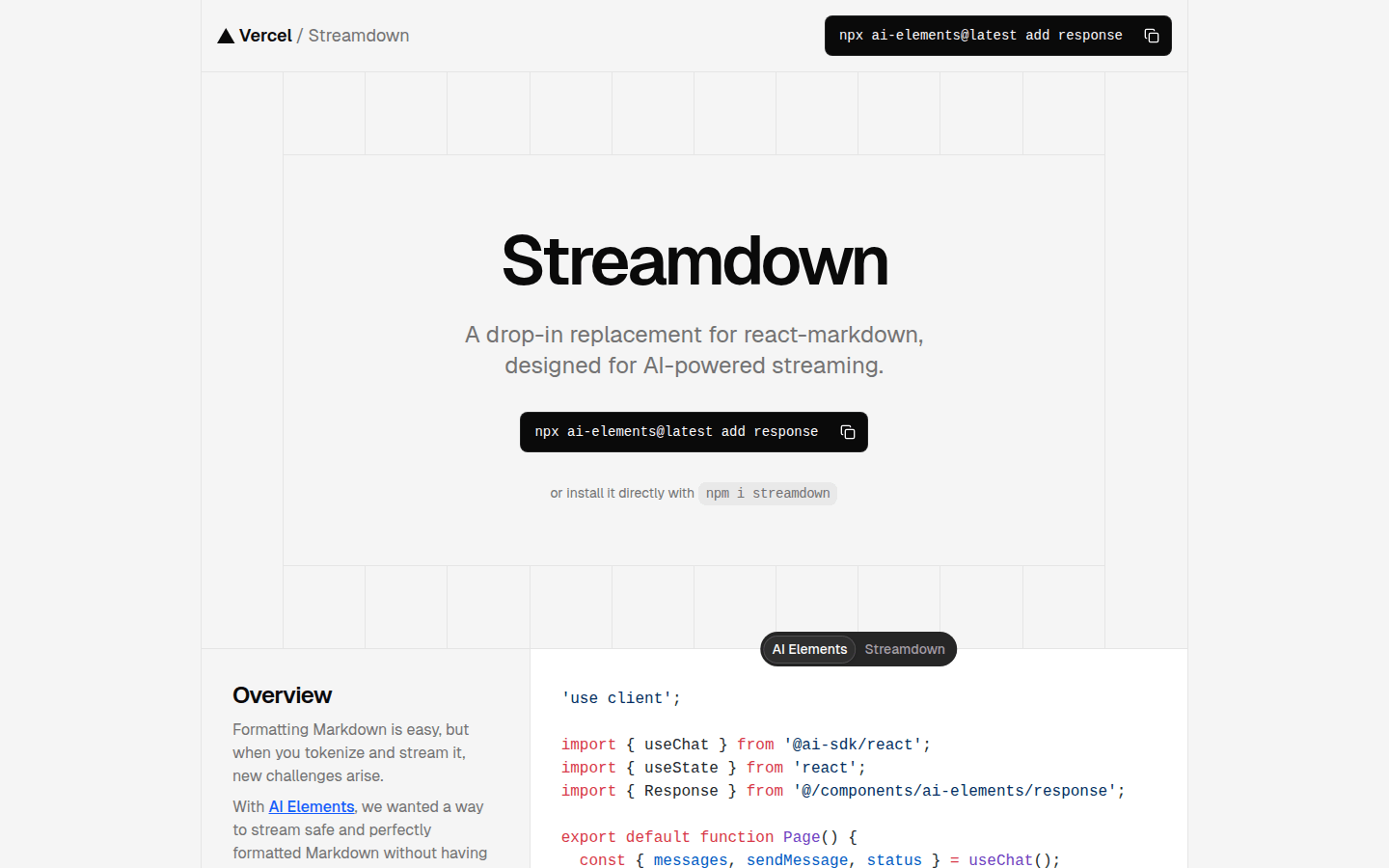
Streamdown
Streamdown is a plug-and-play replacement for React Markdown designed for AI-driven streaming. It solves new challenges that arise when marking and streaming, ensuring safe and perfectly formatted Markdown content. Key advantages include AI-driven streaming, built-in security, support for GitHub Flavored Markdown, and more.
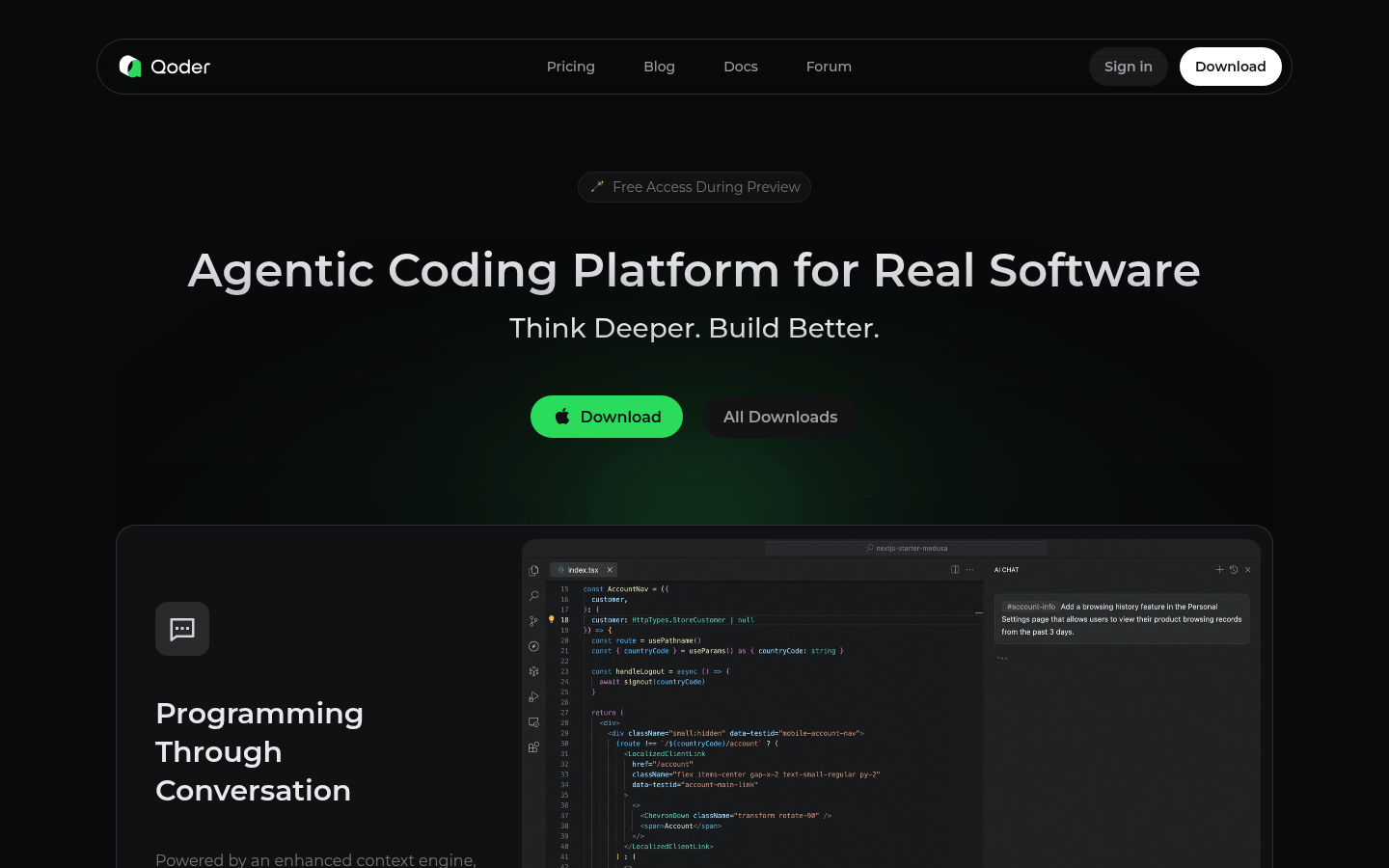
Qoder
Qoder is an agent coding platform that seamlessly integrates with enhanced context engines and intelligent agents to gain a comprehensive understanding of your code base and systematically handle software development tasks. Supports the latest and most advanced AI models in the world: Claude, GPT, Gemini, etc. Available for Windows and macOS.

Compozy
Compozy is an enterprise-grade platform that uses declarative YAML to provide scalable, reliable and cost-effective distributed workflows, simplifying complex fan-out, debugging and monitoring for production-ready automation.

Dereference
Claude Code is a futuristic IDE that seamlessly integrates with CLI AI tools such as Claude Code and Gemini CLI. Its main advantages are that it provides multi-session orchestration, atomic branching capabilities, and greatly improves developer productivity. The product is positioned to be designed for developers who want fast delivery.
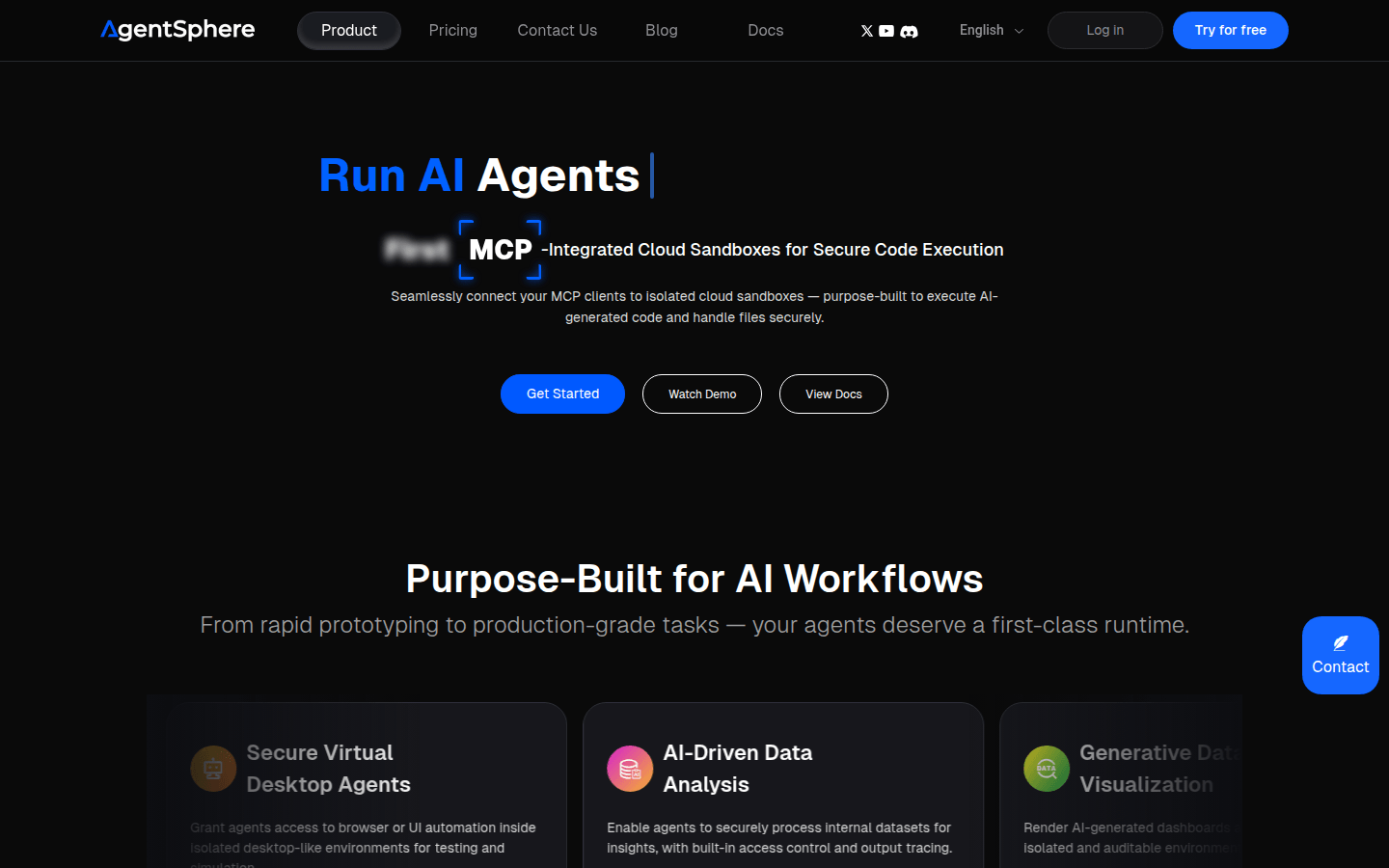
AgentSphere
AgentSphere is a cloud infrastructure designed specifically for AI agents, providing secure code execution and file processing to support various AI workflows. Its built-in functions include AI data analysis, generated data visualization, secure virtual desktop agent, etc., designed to support complex workflows, DevOps integration, and LLM assessment and fine-tuning.
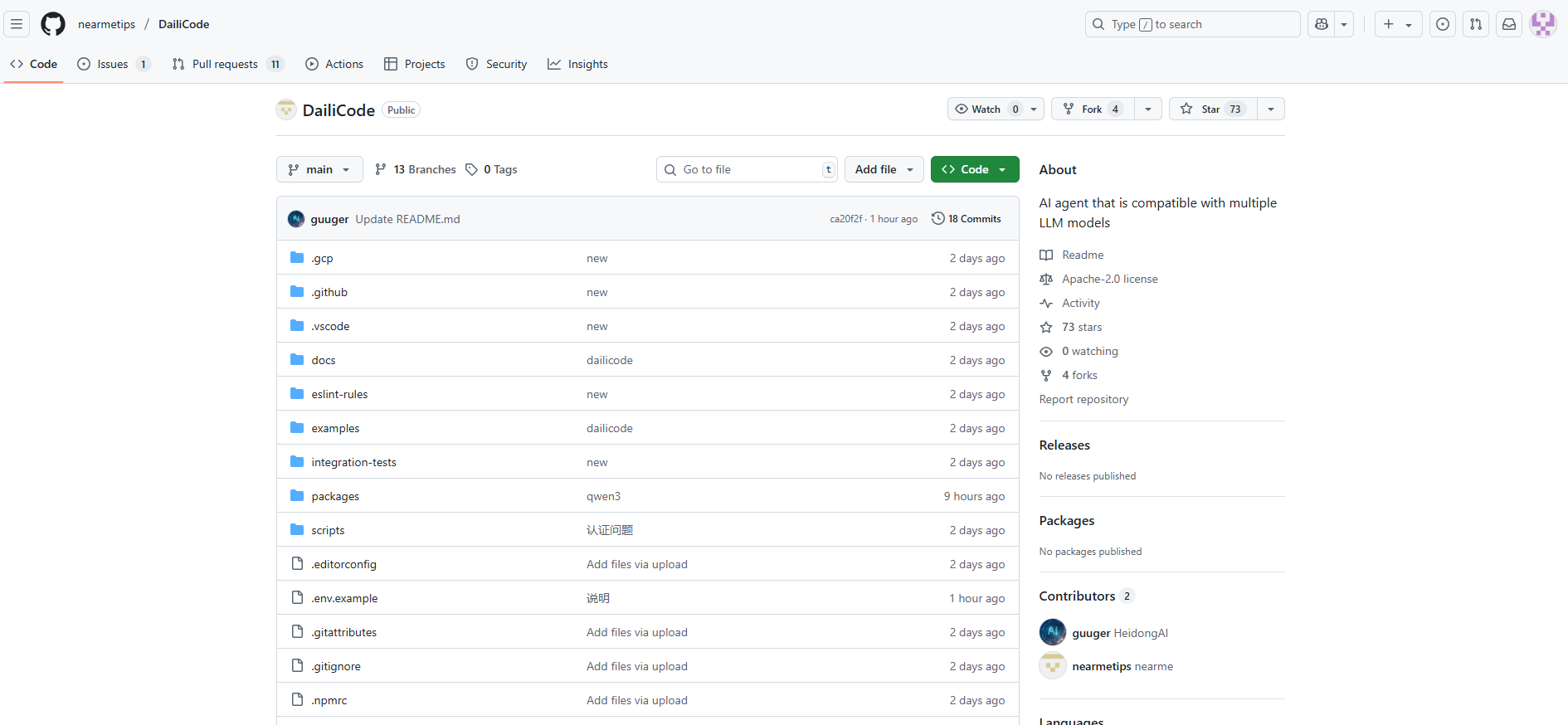
DailiCode
Daili Code is an open source command-line AI tool that is compatible with multiple large language models and can connect to your tools, understand code, and accelerate workflows. It supports multiple LLM providers, provides powerful automation and multi-modal capabilities, and is suitable for developers and technicians.